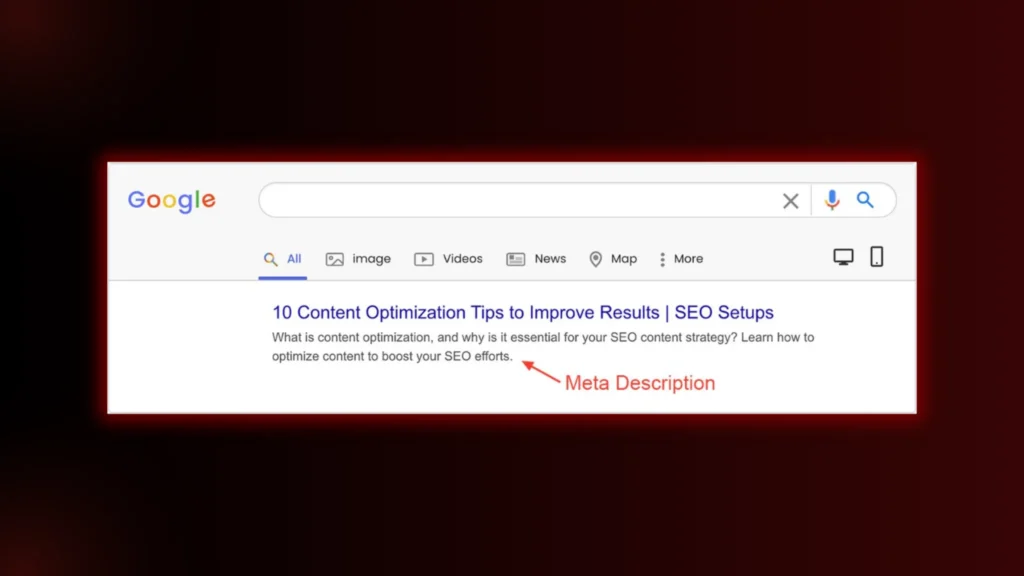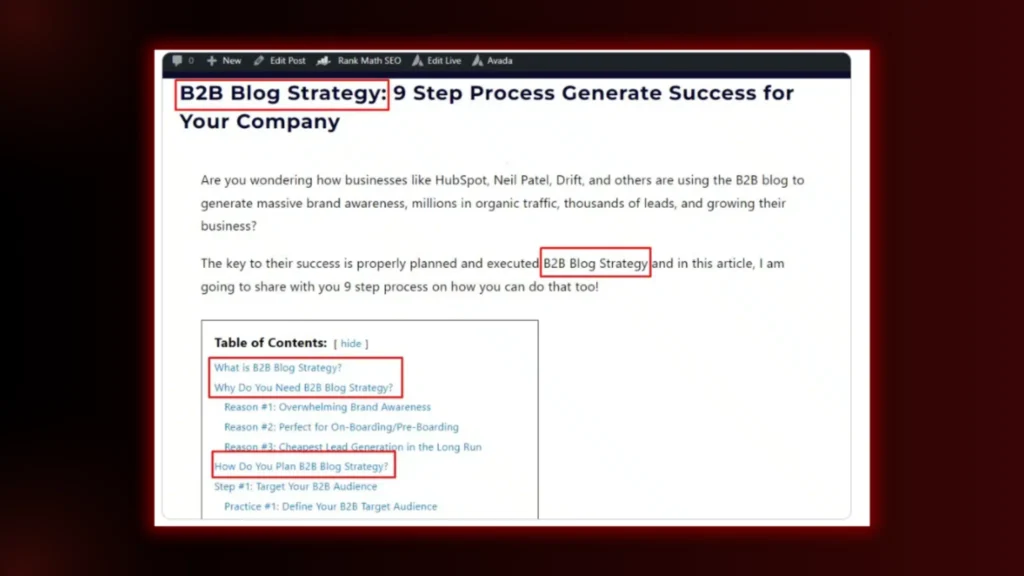As a tech startup founder, you’ve got your hands full building innovative solutions, pitching to investors, and managing a growing team. But the truth is even the best products won’t sell themselves. If your website isn’t pulling its weight, bringing the right audience and driving conversions you’re leaving growth on the table. That’s where SEO content writing for tech startups steps in to make a difference.
The problem? Most startups struggle to get this right. You either end up with content that’s invisible on Google or content that brings in traffic that doesn’t stick around, let alone convert. Add tight budgets, limited resources, and the constant pressure to scale quickly, and it’s no wonder content often falls to the back burner.
But here’s the good news: writing SEO-optimized content that resonates with your audience and delivers results doesn’t have to be overwhelming. With the right approach, you can position your startup as a trusted leader, attract high-intent visitors, and turn your website into a conversion machine without draining your time or budget.
In this blog, we’ll break down proven strategies for SEO content writing for tech startups that rank on search engines, connect with your ideal customers, and drive measurable growth.
Let’s get started.
What is SEO Content Writing?
SEO writing is about creating top-notch, relevant, and keyword-focused content that boosts your website’s visibility on search engines. For tech startups, it’s about crafting content that speaks directly to what potential customers, investors, and partners are looking for online.
Let’s say you’re a SaaS startup with a productivity tool. Writing blog posts like “10 Time Management Tips for Remote Teams” or “How to Choose the Right Productivity Software for Your Startup” can draw in the right audience of people actively searching for solutions like yours.
Why Tech Startups Need SEO-Optimized Content?
1. Boost Your Visibility
SEO-optimized content is like a spotlight for your startup. It makes sure that when potential customers are doing searches around what you offer you are around. Take, for instance, if your company gets traffic for “best CRM software for small teams”, and your product is in front of the right decision-makers at the right time.
2. Budget-Friendly Marketing
Instead of paying for ads that you have to keep investing in, SEO gives you a gift that keeps on giving. If your content starts ranking well, you are done with paid campaigns and you begin to generate traffic without any further efforts. Furthermore, it’s an efficient way to stretch your marketing dollars.
3. Build Trust and Credibility
High quality and insightful content you share also help to build a reputation of you and your startup as a trusted expert in your line of business. If you’re a cybersecurity company and are publishing a blog post, “Top Cyber Threats for Startups in 2025” it won’t only give you the info to help your audience understand, but it’ll also show off your expertise.
Key Strategies for SEO Content Writing
1. Conduct In-Depth Keyword Research
In the SEO world, keyword research is the cornerstone of effective SEO. Here’s how tech startups can approach it:
- Focus on Long-Tail Keywords: Instead, speak to more specific words like “CRM software” or instead of “CRM software,” use words like “affordable CRM tools for freelancers”. Long Tail Keywords will attract a niche audience and you will have lower competition.
- Use Tools: To find high-traffic, low-competition keywords that are related to your startup, use SEMrush, Ahrefs or Google Keyword Planner.

- Analyze Competitors: Find out what keywords your competitors are ranking no:1 for and find gaps in your keyword list. Indeed, if a rival is not aiming for ‘AI-powered project management tools,’ this can be your chance.
2. Create High-Quality, Value-Driven Content
Content that delivers real value is on priority for search engines. To create such content:
- Address Pain Points: Teach what they don’t know they need to know. One way to phrase this is ‘How to Scale Your Startup’s Tech Stack Efficiently.’
- Use Data-Driven Insights: Be illustrative of statistics, case studies, and real-world examples. Say, by referencing such success metrics as a client made using your software.

- Focus on Originality: Avoid duplicating content. There are no better search engines that reward unique perspectives and slap your hand down when you repeat the same content.
3. Optimize Content Structure
A well-structured piece is easier to read and improves search engine rankings. Tips include:
- Use Headings Strategically: Use keyword-rich headings (H1, H2, H3) to organize your content. For example:
- H1: “How to Choose the Right CRM Software”
- H2: “Top Features to Look For”
- H3: “Customizable Dashboards”
- Write Engaging Meta Descriptions: Summarize your content in 150-160 characters. Example: “Discover the top CRM tools for startups, their features, and how they can boost your team’s efficiency.”

- Optimize for Featured Snippets: Answer questions directly in your content to increase the likelihood of appearing in Google’s featured snippets.
4. Implement On-Page SEO Techniques
On-page SEO is when each component of your webpage is geared up to help you rank better. Best practices include:
- Strategic Keyword Placement: Make titles have primary keywords, and the primary keywords in the subheadings, and then in the content as naturally.

- Internal Linking: Pointing to other pages on your website that are relevant will increase navigation and have a lower bounce rate.
- Image Optimization: Images should have descriptive alt text and files compressed to load faster.
Content Types That Work for Tech Startups
1. Blog Posts
To target different buyer journey stages updates to regular blogs are crucial. Ideas include:
- Tutorials: “[Your Product] How to Automate Workflows.”
- Thought Leadership: “Artificial Intelligence Trends for Startups 2019.”
- Lists and Guides: “Top 10 Must Have Tools for Startup Growth.”
2. Case Studies
Provide real-world stories that prove your product works. An example would be: “How [Client Name’s] 40% Increase of Efficiency Using [Your Product].”
3. Whitepapers and eBooks
Write deep resources on difficult subjects, such as our A Beginner’s Guide to Cloud Computing for Startups resource. They are perfect for lead generation when given for free.
4. Landing Pages
Make design-specific pages for campaigns or keywords. In fact, “AI-Powered Solutions for Small Businesses” with obvious calls to action (CTAs).
Technical SEO for Content Success
Technical SEO is ensuring Search engines can crawl and index that content for people. Key aspects include:
- Site Speed: GTmetrix helps you in analyzing and optimizing load time.
- Mobile Optimization: Use Responsive Designs which fit into a mobile environment that makes up a large portion of the web.
- Structured Data Markup: To help your content, make it search engine friendly, implement schema markup.
- Secure Website: Make sure that you have to go HTTPS through your site since there are several reasons for that.
Measuring Content Performance
The performance helps us track our strategy. Focus on these metrics:
- Organic Traffic: Find out how many visitors you got from search engines.
- Bounce Rate: Ask yourself whether your content is effective with users.
- Conversion Rate: Analyze how effectively content moves people into taking the desired action – downloads or sign-ups.
- Keyword Rankings: This is how you should monitor how well your target keywords are performing over time.
Future Trends in SEO Content Writing
1. AI and Automation
ChatGPT is a kind of AI tool that helps you brainstorm more ideas, optimize your content, and analytically check your performance. Nevertheless, always check their content and customize it to ensure it’s authentic.
2. Voice Search Optimization
Given the growing prevalence of voice search, it means it’s time to focus on conversational keywords and question-based phrases like What’s the best productivity software for startups?
3. Video Content Integration
Users increasingly prefer videos and search engines increasingly prefer videos. Add tutorials, and product demos to your strategy and include customer testimonials.
4. E-A-T Principles
Expertise, Authoritativeness and Trustworthiness are what Google exalts. If you want to showcase your credentials and link to reputable sources, you also need to ensure transparency to build trust.
Conclusion
SEO content writing for tech startups is a powerful tool for tech startups looking to establish a strong digital presence and achieve sustainable growth. By implementing the detailed strategies outlined above, your startup can attract the right audience, build authority, and stay ahead in the competitive tech landscape.
And if you wanna get SEO content writing for tech startups done by a professional and experienced team, BrandClickX is the name to call!
Contact us to discuss this in detail!
FAQs
Why is SEO content writing for tech startups important?
SEO content writing for tech startups helps businesses increase their online visibility, attract potential customers, and build brand authority. By optimizing content for relevant keywords and providing valuable information, startups can rank higher on search engines, leading to more organic traffic and potential leads.
How do you choose the right keywords for a tech startup’s content?
The right keywords are chosen based on thorough research, considering factors like search volume, competition, and relevance to your target audience. Tools like Google Keyword Planner and SEMrush are often used to identify high-value keywords specific to your niche. Long-tail keywords can also help target users with specific search intents.
How long does it take to see results from SEO content writing for tech startups?
SEO is a long-term strategy. Depending on the competition and keyword difficulty, results can start showing within 3-6 months. Consistent effort and regular optimization can lead to sustained growth over time.



